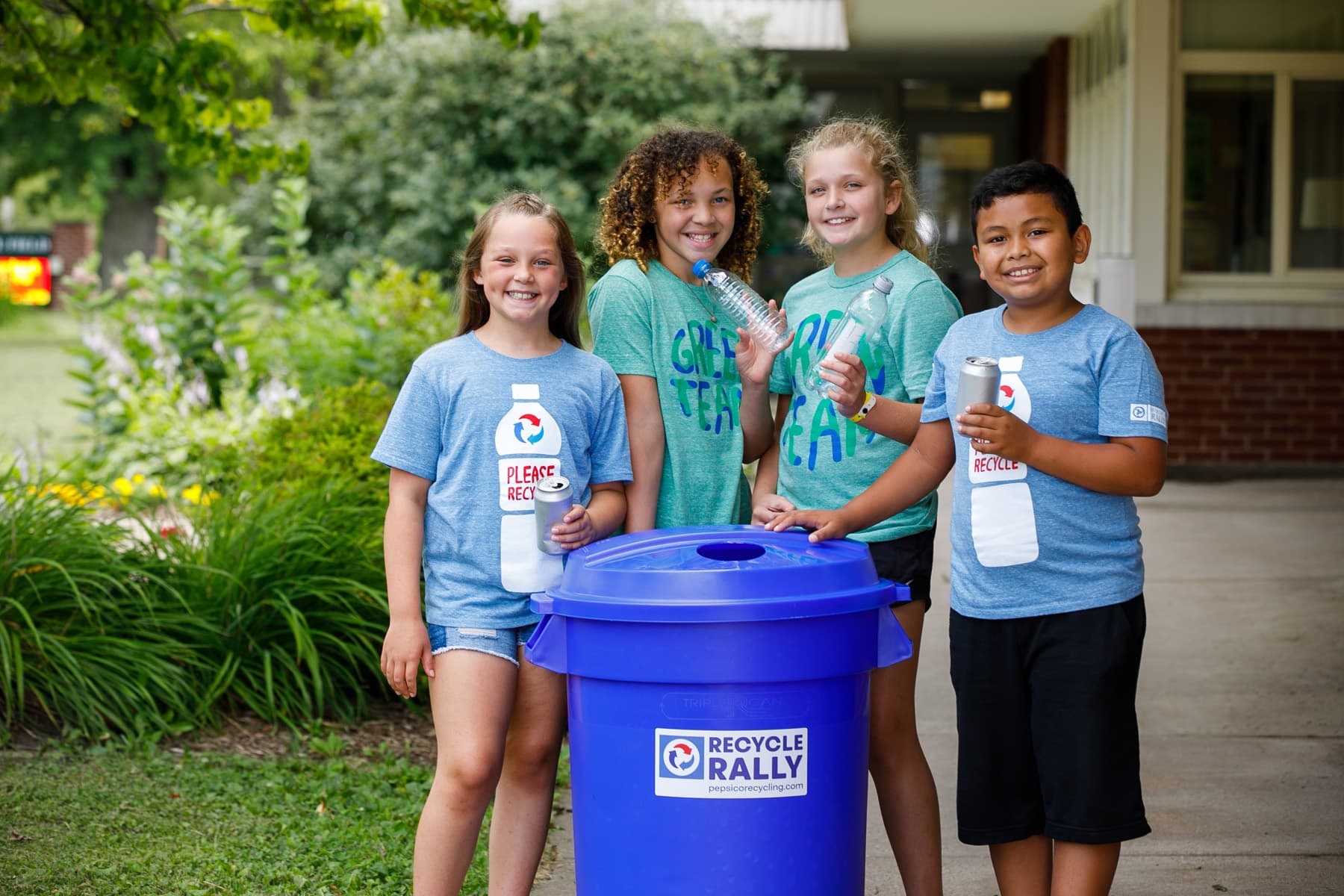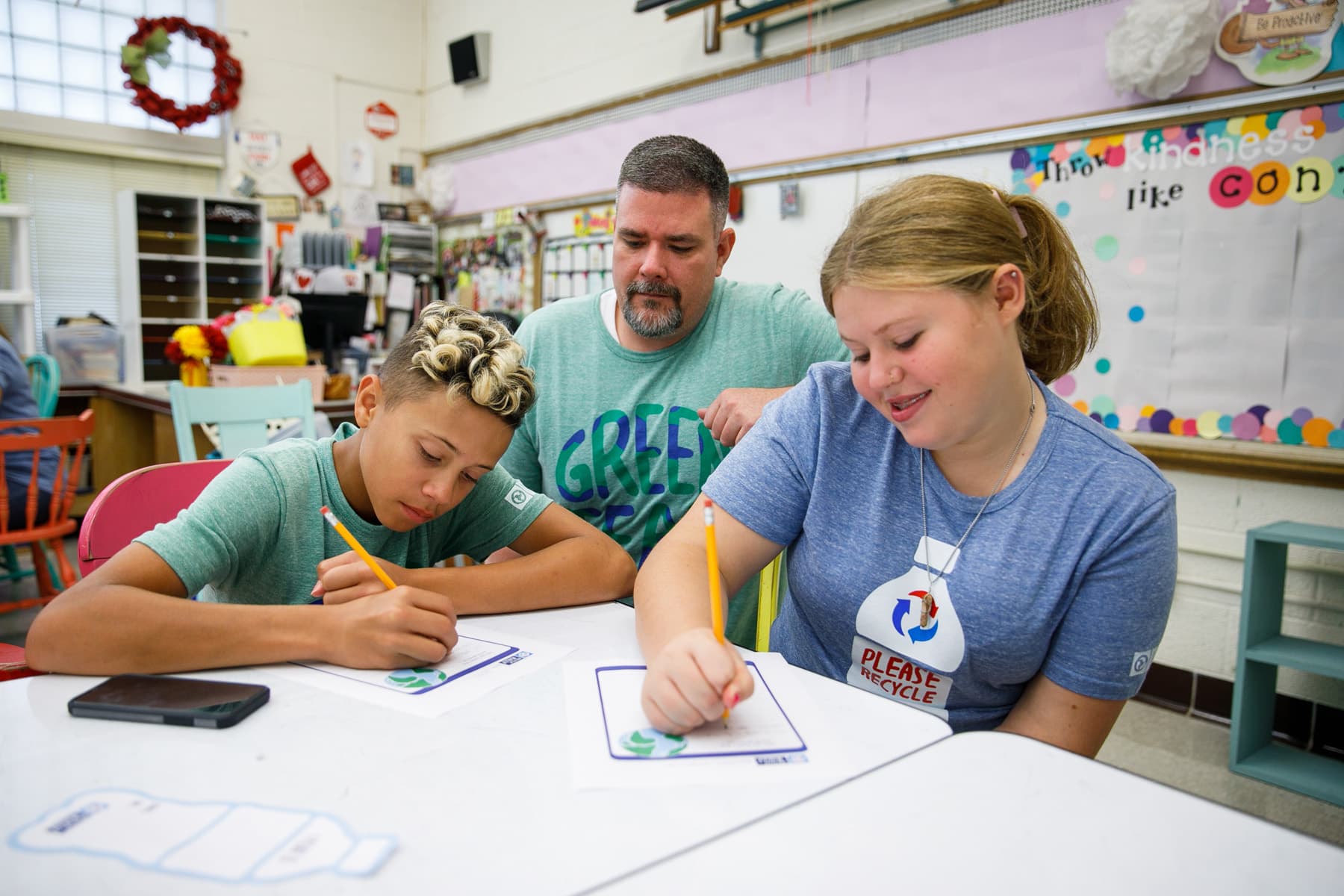Video: Recycle Rally Leaders Share Ways to Get Students Involved in Recycling
Get them to care, and they'll participate.

Want to encourage more kids to recycle at your school? Watch the video below to learn how these Recycle Rally leaders increased student recycling participation.
How did your school introduce Recycle Rally to your students?
Nina Corley: Our school introduced Recycle Rally through the science classes. They started out doing research into the science behind recycling.
Brittany Bauer: Our school first introduced the Recycle Rally by creating a movie for the entire school body that showed a little bit about recycling, but also about what their plans and goals were.
Isabel Anaya: There were a lot of games during our kickoff. That kickoff on a Saturday sparked so much interest with our students.
What advice do you have for engaging students?
Nina Corley: What has really been important for me is making sure they understand why you recycle. On Recycle Rally, where it tells you the amount of energy you’ve saved equals the weight of a whale—that kind of stuff is important because kids see the difference.
Patty Meehan: I did actually find a non-profit that has a really good program going on. Their warehouse has the recycling equipment, and I went in one day, and I videoed all of that. I created a presentation for the kids, so they could see where the recycling was going.
Isabelle Anaya: We were talking about different ways to continue to promote that excitement, to keep the excitement going within the students and families. One of the things we started to do was monthly competitions—friendly competition within classrooms and grade levels. That was really what sparked it.
Patty Meehan: I talked to individual teachers about students who thought would be good student recycling assistants. I would go around school, usually in the afternoons, to pick up recycling. I would have my student recycling assistants come with me and hold the bags, tie up the bags, and so forth. The kids really loved it. It wasn’t just kids who were making good grades. I’m a speech pathologist, and I work with kids with special needs. Those kids were rewarded by coming with me and being my recycle assistants. That worked really well.
How do you ensure students are recycling correctly?
Brittany Bauer: We have Friends of the Earth; it’s a club. They sort recyclables, so they don’t like to see anybody put anything in the wrong place. So that peer pressure helps get the students to recycle correctly.
How has the program provided student leadership opportunities?
Isabelle Ayana: My afterschool club, Eco-Friends, is the one that sorts and weighs everything. One of them is the one that’s keeping track and documenting, and then we have somebody that’s using the scales. When our students leave elementary school, we see a lot of initiative for them to start a recycling program or Green Team at the middle school level.
Ginger Reasonover: Our Green Team is hands-down one of the best groups of kids all around. Not only are those students responsible for helping us sort through those cans and bottles, they also act as the liaisons in their classrooms.
Brittany Bauer: The Recycle Rally program created leadership opportunities for our students because we don’t have clubs outside of sports. They were interested in environmental activities, and they created media for our club. They created movies so there were opportunities for those who were interested in the technology aspect of getting the word out. It also involved people who wanted to make a change in their community.
Nina Corley: Often what I’ve done is found a couple of seniors that want to take on the leadership role for a recycling project. So I’ll have a senior, or maybe two seniors, who are in charge of it, giving them a chance to do something in a leadership position.
How has Recycle Rally impacted your students?
Brittany Bauer: It’s changed their life! Some of them are thinking now of pursuing jobs in environmental science because of this.
Isabelle Ayana: It has become something of who we are, and what we look forward to doing. It’s not, “Are we going to recycle?” It’s, “When are we going to recycle?”
Nina Corley: They can make a difference. They’ve been able to learn the science behind it, to understand it’s not just somebody saying, “Oh, you should recycle.” They understand why you recycle. That knowledge has given them a lot of self-confidence. They’re like, “Okay, I’m an expert in this. I know, I can teach other people about it, even adults.” So it’s something that will help them not only in their confidence with this, but in other things too.
Advice for educators starting the program at their schools?
Brittany Bauer: Involve students! If you have students who have a general interest in the environment or recycling, let them make their goals. Guide them into what you think is feasible, but they may just blow you away.
Patty Meehan: Share your passion for this program and for recycling. Don’t underestimate the kids. They get this! I tell my students all the time: This planet is yours. This is the planet you’re gonna have when you grow up, and so it’s really important to take care of it.
Looking for more ways to increase student recycling participation? Check out the Recycle Rally resource folder here!
Student Involvement with Recycling
Learn More

Recycle Rally
Recycle Rally is a free K-12 program that provides rewards and tools to help enhance recycling at your school!
Explore now
Additional Resources
Our comprehensive library of resources was designed to inspire the next generation of green leaders.
Explore now


